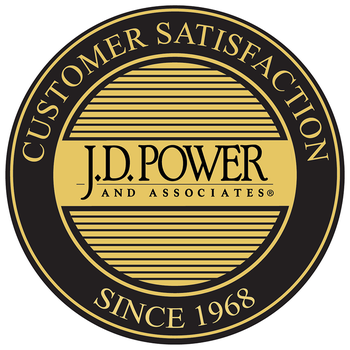
In the automotive industry, J.D. Power is a name synonymous with reliability and customer satisfaction. Their annual reports and studies serve as benchmarks for manufacturers and consumers alike, providing valuable insights into vehicle performance, dependability, and overall owner satisfaction. Over the years, Korean automakers, particularly Hyundai and Kia, have consistently performed well in these reports, leading to a significant shift in perception regarding their quality and reliability. This article examines the findings from J.D. Power reports and compares Korean cars to their competitors in the automotive market.
The Rise of Korean Automakers
Historical Context
Korean manufacturers like Hyundai and Kia have transformed their reputations from producing low-cost vehicles to creating high-quality, reliable cars that appeal to a broad audience. This transformation has been a significant factor in their success in J.D. Power’s evaluations.
Recent Performance
In recent years, both Hyundai and Kia have ranked highly in various J.D. Power studies, including the Vehicle Dependability Study and the Initial Quality Study. These rankings reflect the ongoing improvements in quality, design, and technology that Korean manufacturers have made, positioning them favorably against competitors from Japan, Europe, and the United States.
Key Findings from J.D. Power Reports
Initial Quality Study (IQS)
The J.D. Power Initial Quality Study assesses new vehicles’ quality based on consumer feedback within the first 90 days of ownership. In the most recent IQS, Kia ranked first among all brands, with Hyundai close behind in the top three. This marks a significant achievement, as it indicates that new owners of Kia and Hyundai vehicles experience fewer problems than those of other brands.
Notable Highlights:
- Kia’s First Place: Kia has consistently improved its initial quality, demonstrating a commitment to manufacturing vehicles that meet consumer expectations right from the start.
- Hyundai’s Close Contention: Hyundai’s position in the top three highlights its effective strategies for quality improvement, showing that both brands are setting benchmarks in the industry.
Vehicle Dependability Study (VDS)
The J.D. Power Vehicle Dependability Study evaluates the reliability of three-year-old vehicles, focusing on issues reported by owners. In the latest VDS, both Hyundai and Kia have ranked favorably, often outpacing traditional leaders like Toyota and Honda.
Notable Highlights:
- Kia and Hyundai in the Top Rankings: Both brands have consistently scored high in dependability, indicating that their vehicles not only perform well initially but also maintain reliability over time.
- Shifting Perceptions: The improved performance of Korean brands in dependability rankings is crucial for altering long-held consumer perceptions regarding their quality.
Customer Satisfaction Index
In addition to quality and reliability, J.D. Power also measures customer satisfaction, which encompasses a broader range of factors including dealership experience, pricing, and overall vehicle performance. Korean automakers have begun to excel in these areas as well.
Notable Highlights:
- Improved Customer Experience: Hyundai and Kia have made strides in enhancing customer service at dealerships, contributing to higher overall satisfaction ratings.
- Value for Money: Korean cars often deliver a robust set of features at competitive prices, which resonates well with consumers looking for value, further boosting satisfaction levels.
Comparison with Competitors
Korean vs. Japanese Brands
Historically, Japanese brands like Toyota and Honda have dominated reliability rankings. However, the recent performance of Hyundai and Kia in J.D. Power reports signals a shift. While Toyota still ranks well, Hyundai and Kia are closing the gap, making them strong contenders in terms of dependability and initial quality.
Korean vs. American Brands
American manufacturers have made significant investments in improving quality and reliability, particularly in recent years. However, J.D. Power reports indicate that Korean cars often outperform American brands in initial quality and dependability. This trend reflects a growing commitment from Korean automakers to prioritize quality over sheer volume, setting them apart in a competitive landscape.
Korean vs. European Brands
European brands are typically associated with luxury and performance, but they often lag behind Korean manufacturers in initial quality and dependability rankings. The complexity of European vehicles can lead to more issues reported by consumers, giving Hyundai and Kia an edge in customer satisfaction metrics.
Implications for Consumers
The positive performance of Korean cars in J.D. Power reports offers several implications for consumers:
Enhanced Trust
As Korean brands continue to rank highly in quality and dependability studies, consumer trust in these manufacturers is likely to grow. This shift can encourage potential buyers to consider Korean vehicles without the biases that once existed.
Competitive Pricing
Korean cars often provide a strong value proposition, offering features and technology comparable to more expensive competitors. The combination of high quality and competitive pricing makes them an attractive option for budget-conscious consumers.
Long-Term Reliability
With strong rankings in dependability, consumers can feel more confident that their investment in a Korean vehicle will provide long-term reliability, reducing worries about maintenance and repair costs over time.
Conclusion
The findings from J.D. Power reports underscore the significant advancements made by Korean automakers in quality, reliability, and customer satisfaction. Brands like Hyundai and Kia have successfully transformed their images, becoming recognized leaders in the automotive industry. As they continue to excel in J.D. Power evaluations, it is clear that Korean cars are not only competing but often outperforming established competitors. This evolution in perception is essential for the future of the automotive market, as consumers increasingly view Korean vehicles as reliable, high-quality options that deliver excellent value. As these brands build on their successes, they are well-positioned to continue influencing the landscape of the automotive industry for years to come.
